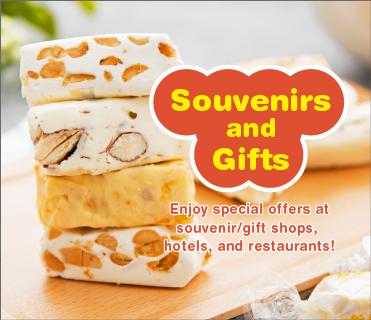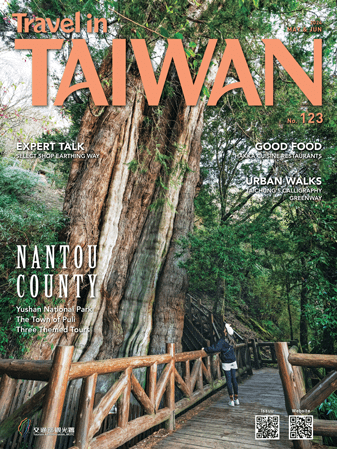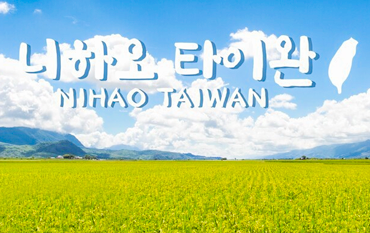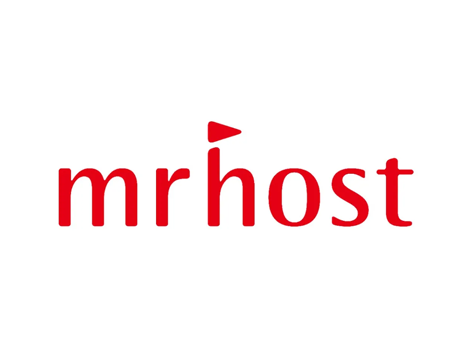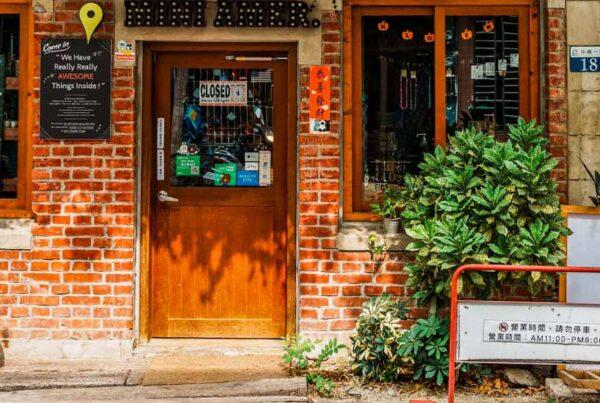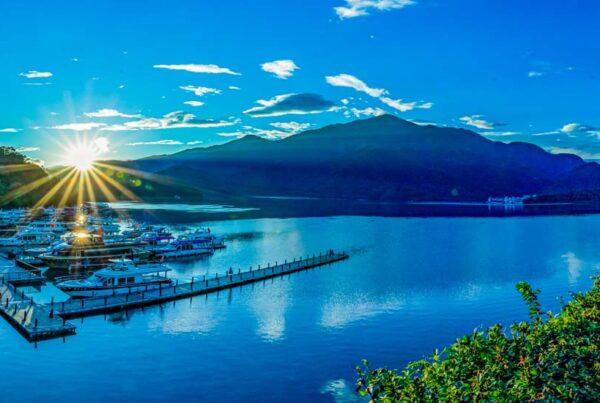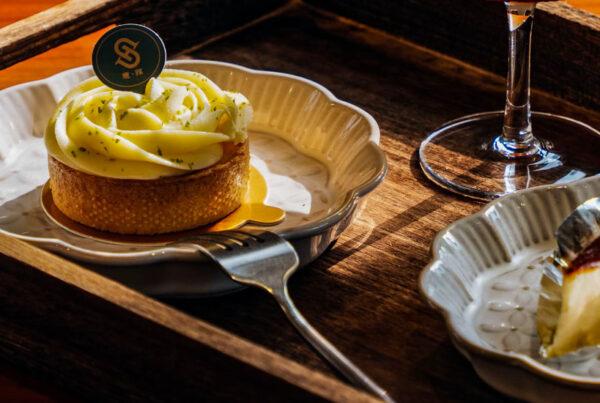A Multi-Day Tour Built Around Premier Wine & Spirit Makers
TEXT / RICK CHARETTE
PHOTOS / RAY CHANG
Tour the best of the fruits of the land in the Taichung/Nantou area through the savoring of some of the finest locally crafted international-style wines and spirits at tourist-welcoming factories, and through the sampling of culinary treats such as rose jam, rose and passionfruit health vinegars, almond/honey gelato, and red-wine beef noodles.
In 2001 Taiwan became a member of the World Trade Organization (WTO). Since then, enhanced availability of the best wines and spirits from around the globe has been matched with the ever-increasing sophistication of Taiwanese palates. Enterprises dedicated to the production of fine wines and spirits have sprung up around the island, studiously sourcing the best available production knowledge and equipment from overseas, and many are winning awards in prestigious international competitions. In this Feature we spend a few days in central Taiwan’s Taichung City and Nantou County, visiting some of the best tourist-oriented wine and spirit facilities along with recommended nearby sightseeing and culinary destinations.
Taiwan Sake Factory
Southeast of Taichung’s city core is the district of Wufeng, an agricultural area developed during the Qing Dynasty by the Lin family, one of Taiwan’s four most powerful clans in days gone by. Called the Wufeng Lin to differentiate them from another of the clans also surnamed Lin, their sprawling residential complex (in which clan members still live, in off-limits areas) is today a tourist attraction – to be visited in a moment. It is located in small Wufeng town, tucked up against the base of the central mountains, where mountain and flatland meet abruptly.

Just south of the town, on Provincial Highway 3, is the Taiwan Sake Factory, child of the Wufeng Farmers’ Association. Wufeng has a reputation for some of Taiwan’s highest-quality and most aromatic rice, perfect for sake production, and the Taiwan Sake brand has been recognized with numerous awards at prestigious international wine and spirit competitions. Among these are a gold medal for its Rice Shochu in the spirits section at the Concours Mundial de Bruxelles in 2018 and a gold medal in the same competition section in 2017 for its Pure Rice Sake (DaiGinjo). In recent years new selections showcasing other iconic Wufeng agri-products have also been introduced; its Honey and Litchi Wine also won gold at the Brussels competition in 2018.

The enterprise has been producing sake since 2005, working in cooperation with the National Kaohsiung University of Hospitality and Tourism, known for its expertise in wine and spirit production. Personnel were sent for extensive training with a venerable maker of sake in Japan, learning ancient Japanese hand-production techniques. Japanese insistence on purity went so far, say staff jokingly, that to their surprise they were required to strip and don traditional Japanese fundoshi (loincloths) when working directly with the rice. This is not primarily for hygiene purposes, they say; their sake master informed them it was because clothing can transfer odors and affect sake flavor. The factory makes what is described as “Japanese-style sakes with Taiwan/Wufeng characteristics,” the specific Taiwan distinctiveness brought by the local terroir in which the organic rice utilized is produced and the unique mineral content of the pristine “mountain-cleansed” waters used.

The production area is kept immaculately clean, and the complex has an impressively large and attractive showroom (with attached café) that is more like a mini-museum. Along one wall is an extensive illustrated explanation of the sake-brewing process, and there is a sleek sampling bar where staff explain the many different choices available. The outlet also has scores of other Wufeng Farmers’ Association products on display, from vacuum-packed rice to jams to dried fruit/veggie snacks.
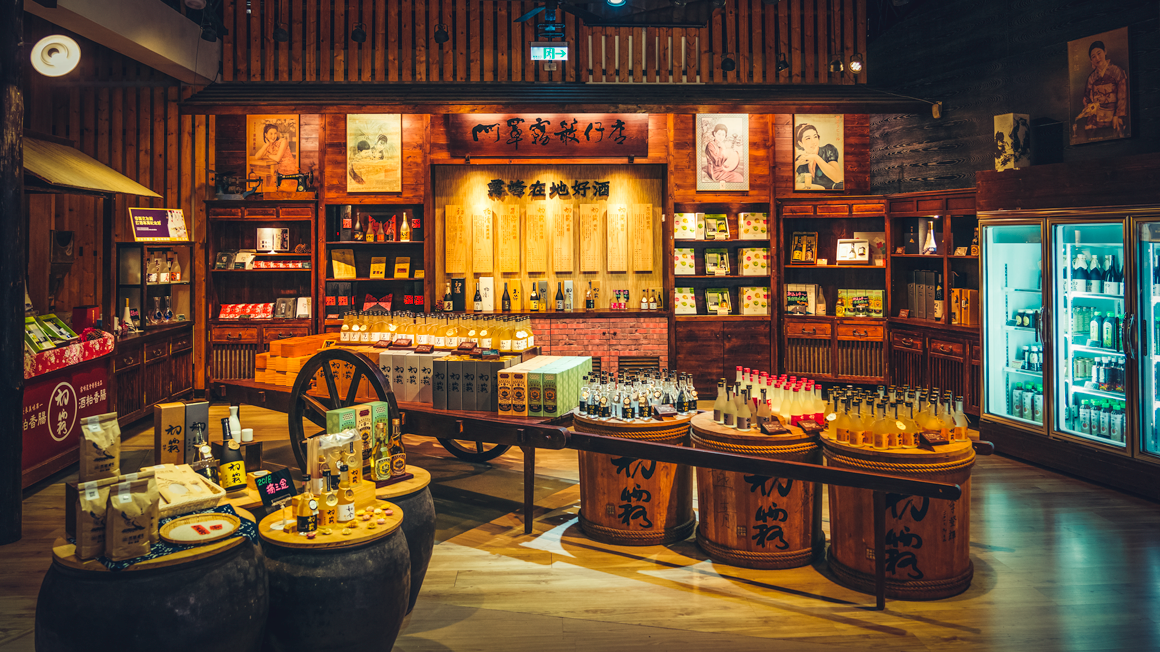
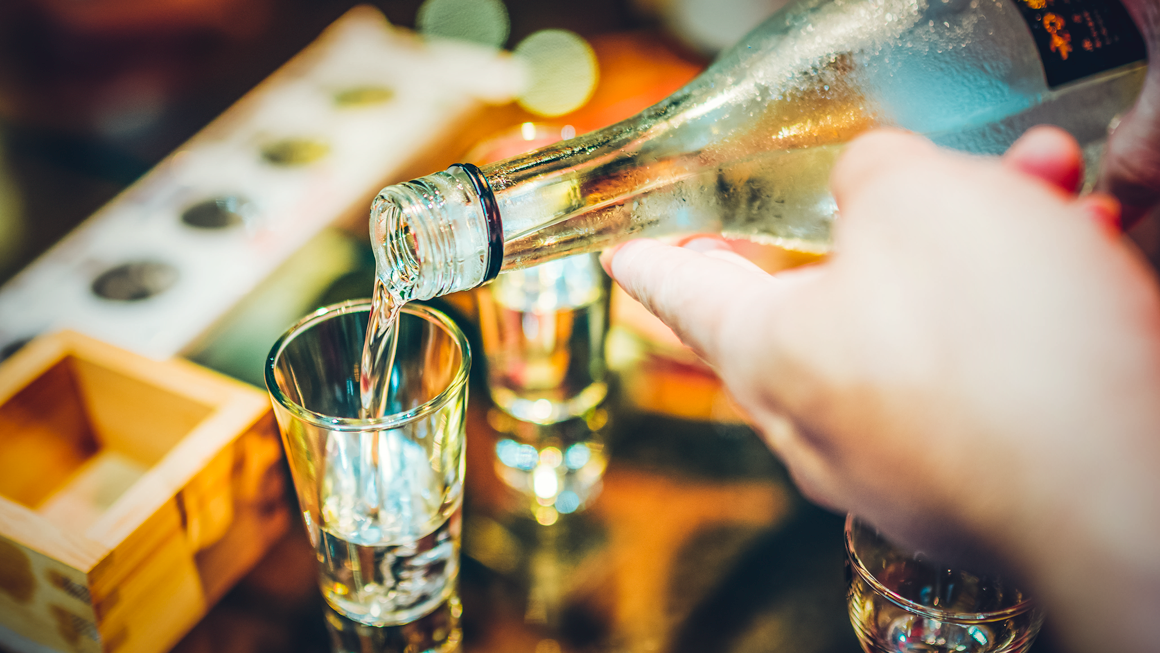

Out behind the factory is a small purpose-built classroom building used for Wine Talk sessions.

A wooden boardwalk runs from it, past demo-farm plots used for the teaching of eco-friendly agricultural techniques, to the Wufeng Story House. This was originally the combined clinic/residence of a beloved local Western-medicine physician, Dr. Lin Peng-fei, who practiced in Wufeng from after WWII into the 1990s. The two-story concrete building was erected in the late 1950s. The farmers’ association bought and renovated the long-abandoned structure to save it from demolition, and has set up period displays demonstrating life as the doctor lived it as well as on Taiwan’s small, tight-knit medical/intellectual community of Western-trained doctors in the period around WWII. The most riveting display details the sinking of the Japanese transport ship Shinsei Maru in Indochina in January 1945, taking the lives of about 80% of Taiwanese Western-medicine doctors. A total of 41 perished. Dr. Lin was among the few who could swim, making it to a nearby shore.


In the rear of the main floor is a small, comfy restaurant serving tasty set meals built around organic Wufeng produce. Wufeng is known for mushroom and mushrooms are prominently featured.

Taiwan Sake Factory (霧峰農會酒莊)
Add: No. 345, Zhongzheng Rd., Wufeng District, Taichung City
(台中市霧峰區中正路345號)
Tel: (04) 2339-9191
Website: twwfsake.com (Chinese)
The Wufeng Lin Family Mansion and Garden, in Wufeng town, is a sprawling complex of traditional courtyard-style residential buildings – Taiwan’s largest, most complete, and most elaborate. Severely damaged in 1999’s massive 921 Earthquake, faithful reconstruction has restored much of its glory. Two large areas are open to tourists: part of the main residential area plus the large, elaborate garden. One highlight of the main section, built in 1858, is the stand-alone private theater, unique in Taiwan. Large water-filled ceramic jars below the stage helped project the sounds on stage. Another is the display of beautifully crafted arquebuses (an old type of gun) – great clans organized militias to fight bandits, rebels, etc. As well, note the pronounced use of swallow-tail roofs, in imperial days reserved for temples and the homes of high officials.
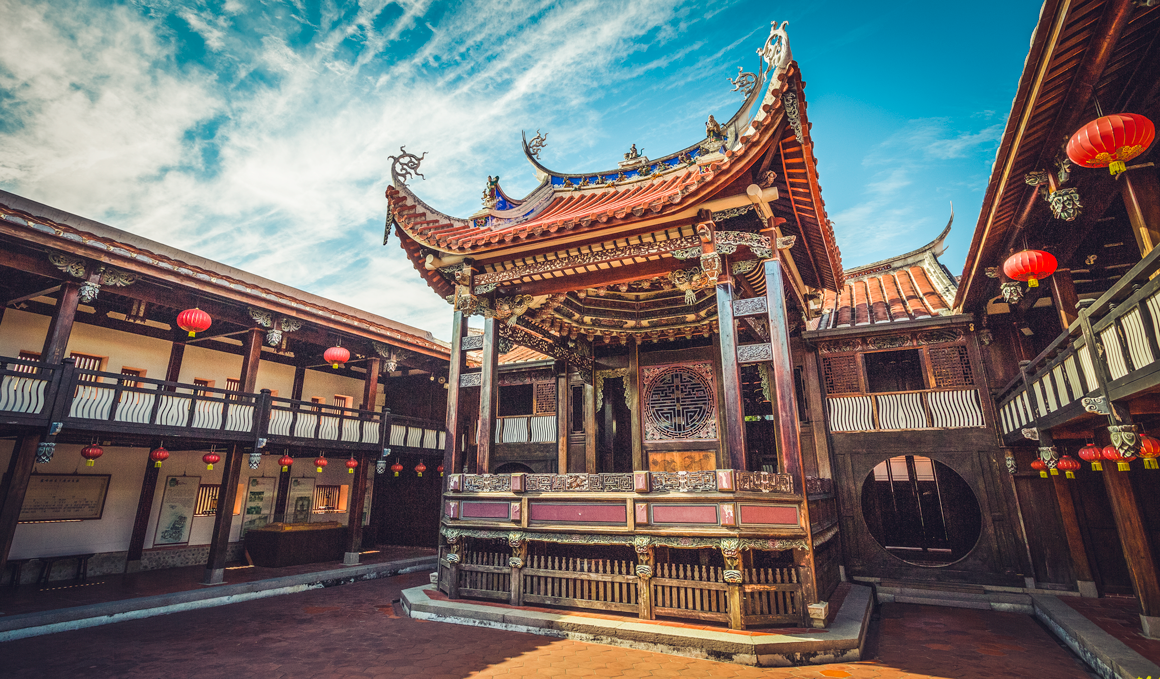
Wufeng Lin Family Mansion and Garden (霧峰林家宅園)
Add: No. 26, Minsheng Rd., Wufeng District, Taichung City
(台中市霧峰區民生路26號)
Tel: (04) 2331-7985
Website: wufenglins.com.tw; Chinese
The 921 Earthquake Museum of Taiwan is located very close to the sake factory. The museum’s centerpiece is Guangfu Junior High School, ripped apart in the quake attack and left as is as a witness to history. It stands right on the fault involved, which runs along the base of the central mountains in this area. Visitors can stand right on the fault on the school track, now brutally deformed in sections with a two-meter-high vertical displacement. Beside the school is a newly-built dedicated museum facility with an exterior of striking visual lines. Inside, the most notable – and unnerving – attraction is the Quake Experience Theater, which simulates what Wufeng residents experienced.
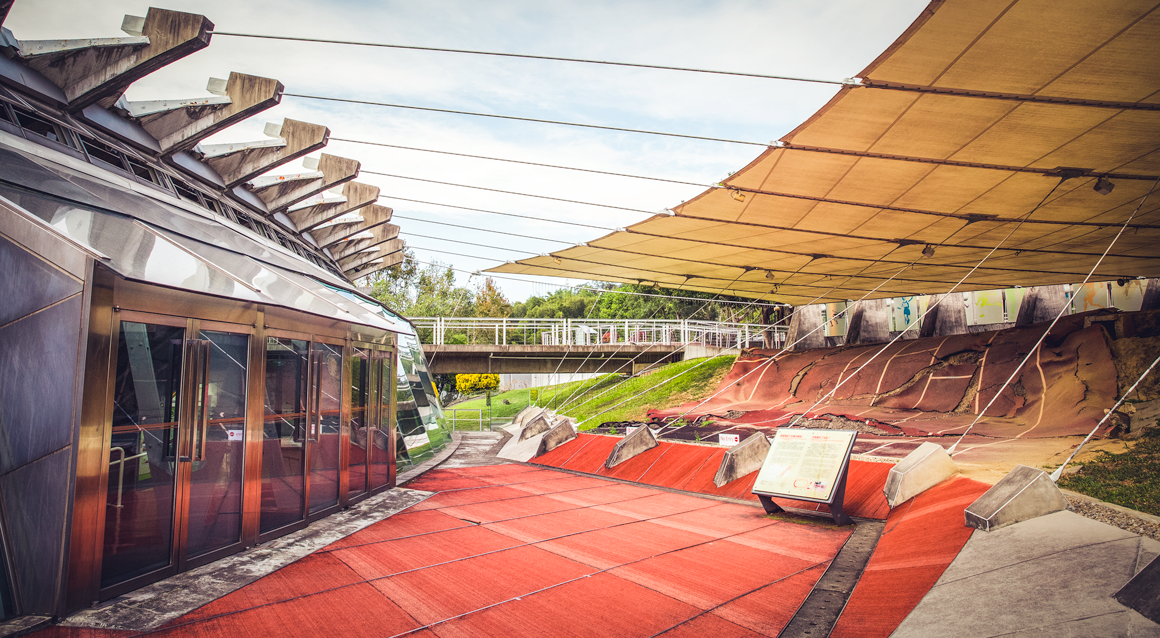
921 Earthquake Museum of Taiwan (九二一地震教育園區)
Add: No. 192, Xinsheng Rd., Kengkou Borough, Wufeng District, Taichung City
(台中市霧峰區坑口里新生路192號)
Tel: (04) 2339-0906
Website: 921emt.nmns.edu.tw
Also read: Old Neighborhood in TAICHUNG: Wufeng’s Guangfu New Village
Puli Distillery
The peaceful Puli Basin is in the mountains east of Wufeng. The town of Puli, gateway to such major attractions deeper in the mountains as Sun Moon Lake and Qingjing Farm, is on its south side. Deep in a small, narrow side valley that leads off from the town’s edge is tranquil Liyu (Carp) Lake, a popular family-oriented leisure destination, which is encircled by a tree-shaded trail and has a number of mid-grade hotels along its shore.
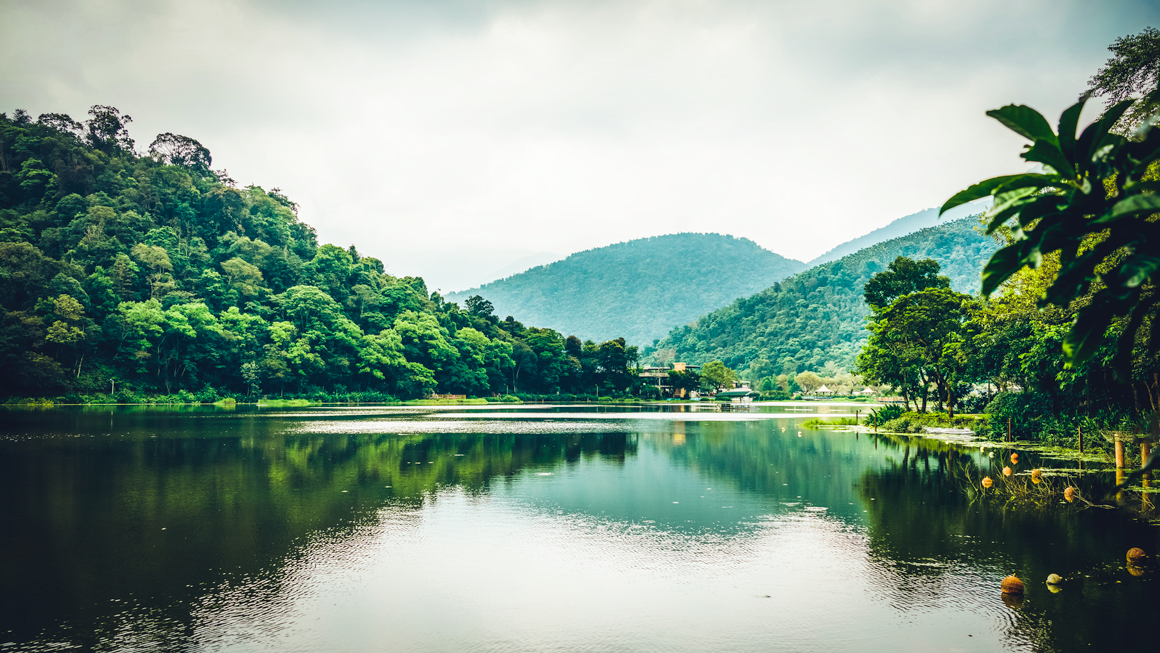
Also at lakeside is the Puli Distillery, run by the Puli Farmers’ Association. The Puli Basin is known for the quality of its waters, and it is an important agri-zone. Two key products, roses and passionfruit, were chosen by distillery management to make wines – the only wines of this type crafted in Taiwan. Fu Jen Catholic University helped choose varietals appropriate for wine production, and the National Kaohsiung University of Hospitality and Tourism has helped with wine-making technique. Both flower and fruit are grown organically. Among the winemaker’s many competition laurels, its Love Rose selection took silver at the 2008 Concours Mundial de Bruxelles, and its Passion Fruit Mild Wine won gold at the Meiningers International Spirits Award 2016 and the Internationaler Spirituosen Wettbewerb 2015.


The distillery has a large, brightly lit showroom with various wines on display, along with myriad other Puli Farmers’ Association products. Visitors can sample any of the alcohols that interest them at the wine-tasting counter. Also specially recommended are the aromatic rose and passionfruit vinegars and jams, also made on-site. Taiwanese like to take vinegar as a health drink. A popular DIY-activity offering is the jam-making experience (groups of 20 or more, NT$200 per person), during which you fine-cut your own rose petals, boil them, add lemon bitter (made on-site), which draws out the rose taste, stir the mix to a paste, and bottle the edible treasure to take home. Sessions are held in the airy, high-ceilinged café, which looks out over the lake.

Puli Distillery (埔里農會酒莊)
Add: No. 22-3, Liyu Rd., Puli Township, Nantou County
(南投縣埔里鎮鯉魚路22-3號)
Tel: (049) 242-3828
Website: distillery.pulifarm.org.tw (Chinese)
Feeling 18 is a cluster of stylish shops and stands (with dedicated parking lot) selling European- and Japanese-style culinary treats, which has grown organically in a residential area of Puli town. Owner of all is a single person, known as Master Mao, whose passion for chocolate caused him to pursue private studies in Japan and, eventually, return to his native Puli to first open a chocolate shop offering handmade gems, then a gelato shop, then a café/bakery…. At the gelato shop, where the options seem endless, try the new Thai milk tea option and – celebrating Puli’s agriculture – the almond/honey option. At the café/bakery, explore Taiwan’s increasing range of quality coffee-bean selections. The “18” in the name comes from the fact that the optimal temperature for storing chocolate is a cool 18 degrees Celsius; the “Feeling 18” is from the idea that savoring the good things in life, like the delicacies crafted here, keeps you forever feeling young.




Feeling 18 (18度C)
Add: No. 20, Ci’en St., Puli Township, Nantou County
(南投縣埔里鎮慈恩街20號)
Tel: (049) 298-4863
Website: www.feeling18c.com
Also read: 99 Peaks & Puli Paper
Shu-Sheug Leisure Domaine
A winery complex with a café/restaurant Shu-Sheug Leisure Domaine is spread out along the north-facing slope of a low ridge that runs east-west through the Waipu District, in Taichung’s rural northwest section. The large winery building is at the base of the slope, surrounded by vines hanging from trellises. Behind it is the old homestead of the family that runs the enterprise, with two traditional three-sided courtyard-style residences standing side by side, one over a century old. The rustic café/restaurant sits atop the slope, with views both southward toward the city center and northward toward greenery-covered high hills across the wide, deeply fertile Daan River plain. It does double-duty as the winery’s retail shop, with a dedicated tasting counter.
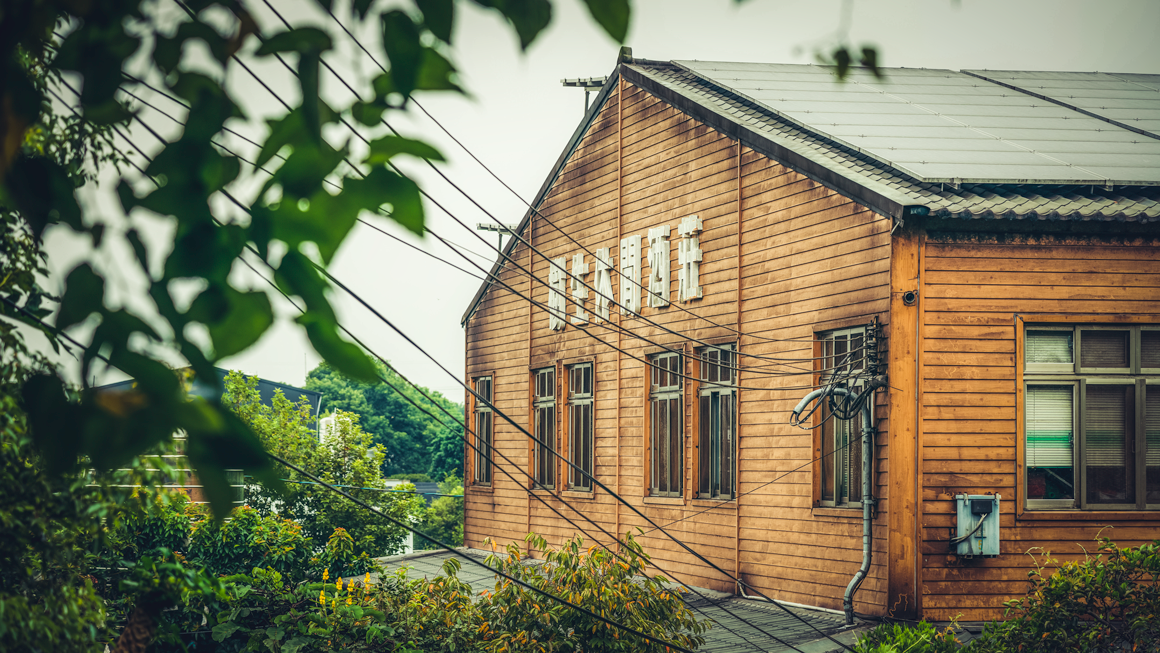
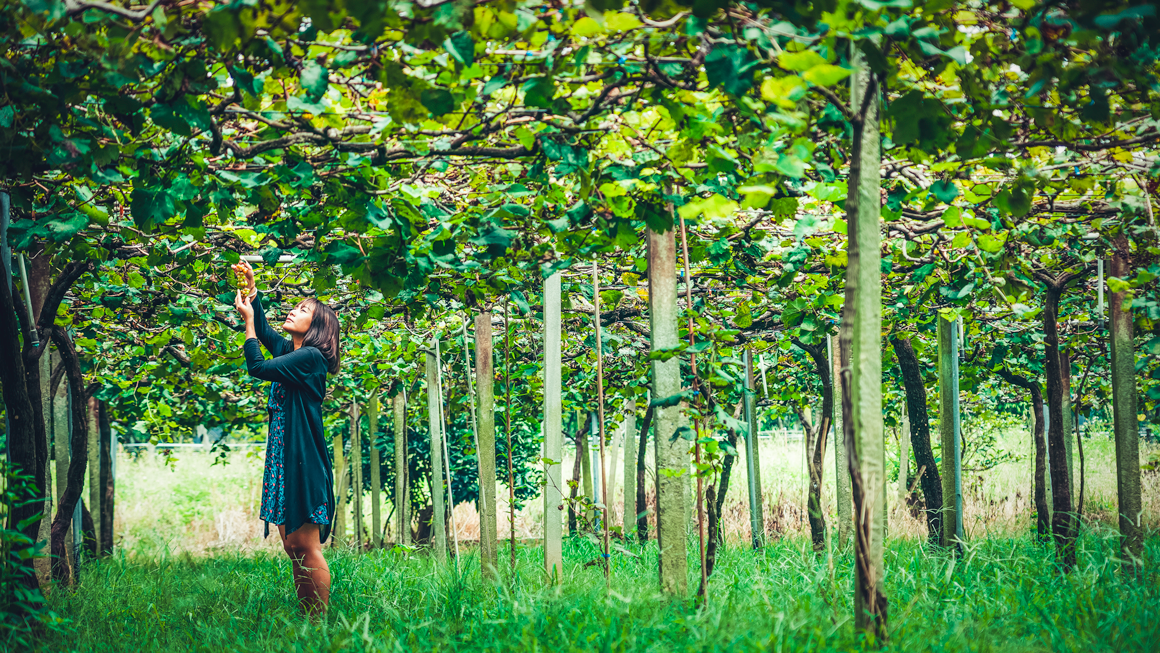
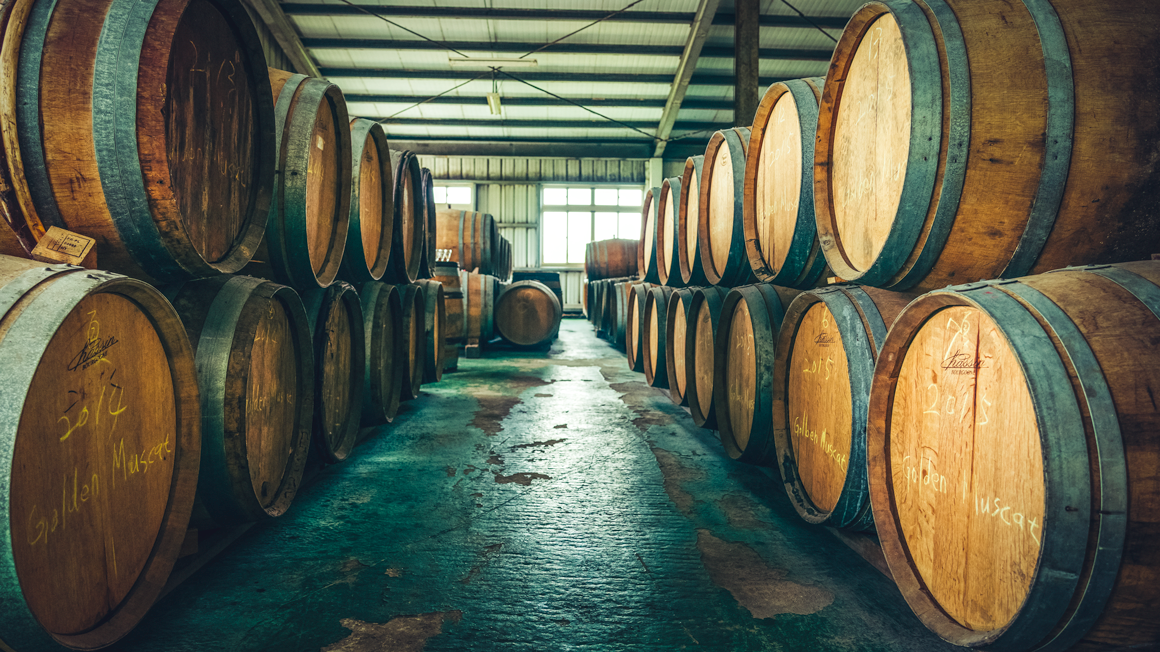
“Shu-Sheug” was the given name of the owner’s grandfather, who in the 1950s was among the first wave of local farmers to take part in a grape-growing experimental venture launched by the Taiwan Tobacco and Wine Monopoly Bureau. In the late 1990s, government-buying contracts were ended, and with government assistance most local farmers tore out their plants. Not willing to destroy his grandfather’s legacy, the owner here decided to open his own winery, honoring his grandfather by using his name when it happened in 2002. With the help of the National Kaohsiung University of Tourism and Hospitality, two grape varieties resistant to the location’s high heat and humidity were chosen – Golden Muscat and Black Queen. Black Queen, widely used in Japan, was developed by Kawakami Zenbei, known as Japan’s grandfather of wines, in 1920.
Chen Chien-hao, an assistant professor in the Kaohsiung university’s Department of Food & Beverage Management, is a renowned figure in the Taiwan world of viniculture. He has been collaborating with Shu-Sheug Leisure Domaine and other central Taiwan winemakers since the early 2000s, helping them perfect their grape cultivation and wine production techniques.
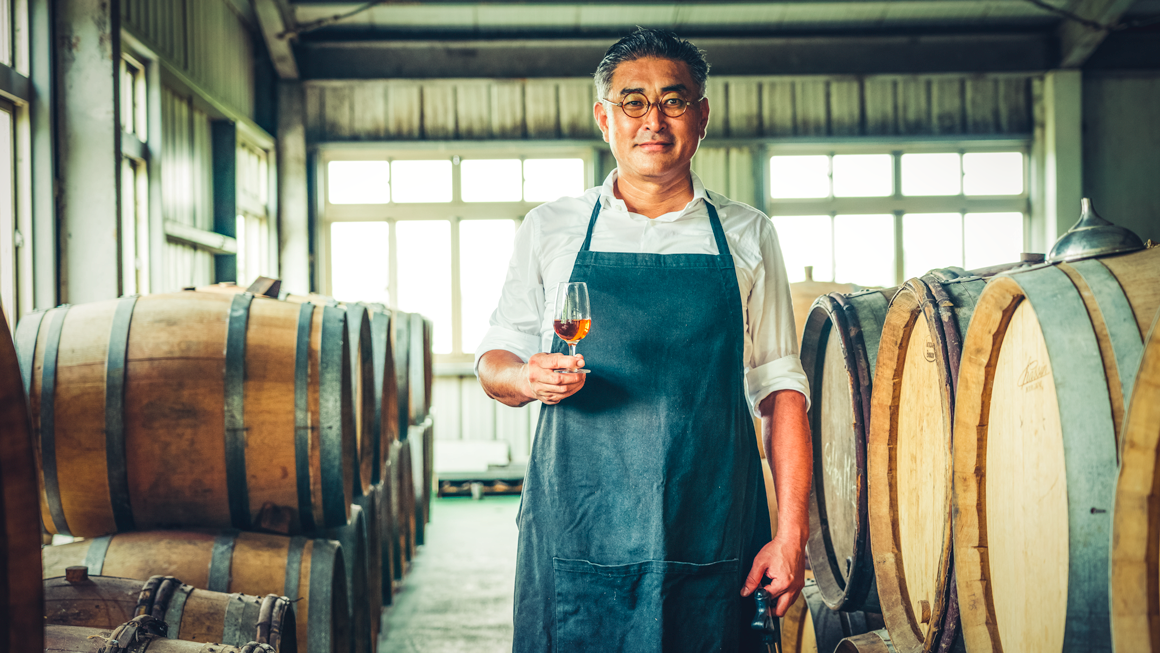
Shu Sheug’s wines are stored in barrels made of French oak by Burgundy’s Chassin Père & Fils. Shu-Sheug Leisure Domaine was bestowed with its most recent of many international awards in March this year, its Vino Formosa Rosso, made with Black Queen grapes, winning gold at the Vinalies Internationales Competition in Paris.
Note that group tours of the winery are offered, in Chinese, with advance notice. While taste-testing at the café/restaurant, be sure as well to sample the eatery’s popular “red wine cuisine” dishes. Most popular is the red-wine beef noodles, redolent of, for obvious reasons, beef bourguignon.



Shu-Sheug Leisure Domaine (樹生休閒酒莊)
Add: No. 88, Shuitou 2nd Rd., Liufen Borough, Waipu District, Taichung City
(台中市外埔區六分里水頭二路8號)
Tel: (04) 2683-3298
Website: shu-sheug.com.tw (Chinese)
The winery’s neighbor on the ridge’s south-facing slope is one of Taiwan’s largest and best theme parks, Lihpao Land, which consists of a water park, a dryland park with the world’s only tilt roller-coaster, Taiwan’s largest Ferris wheel, Taiwan’s longest karting track (and most powerful karts, from Italy), Taiwan’s biggest escape-room theme attraction, a 5-star family-oriented resort hotel, and the international-brand Lihpao Outlet Mall.

Lihpao Land (麗寶樂園)
Add: No. 8, Furong Rd., Houli District, Taichung City
(台中市后里區福容路8號)
Tel: (04) 2558-2459
Website: www.lihpaoresort.com
Also read: LIHPAO LAND Theme Park in Taichung
Daan Wineland
The Daan District is west of Waipu, in Taichung’s northwest corner, the Taiwan Strait on its west, Daan River on its north, Dajia River on its south. All around Daan Wineland, operated by the Daan Farmers’ Association, are farm fields thick with the distinctive large leaves of taro plants, forming mini-seas of waving green. Its signature creations, winners of numerous Taiwan local awards, are Japanese-style shochu made with taro, and brandy made with Black Queen grapes. The master distiller acquired his expertise through systematic overseas studies. Other selections include wines made with plums and with Golden Muscat grapes, shochu made with both taro and sweet potato, and traditional Chinese-style rice wines.
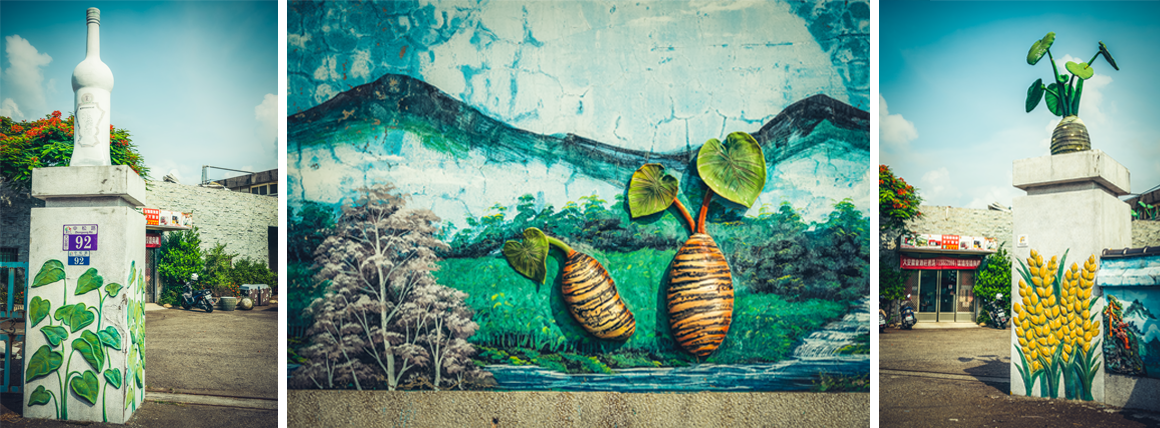
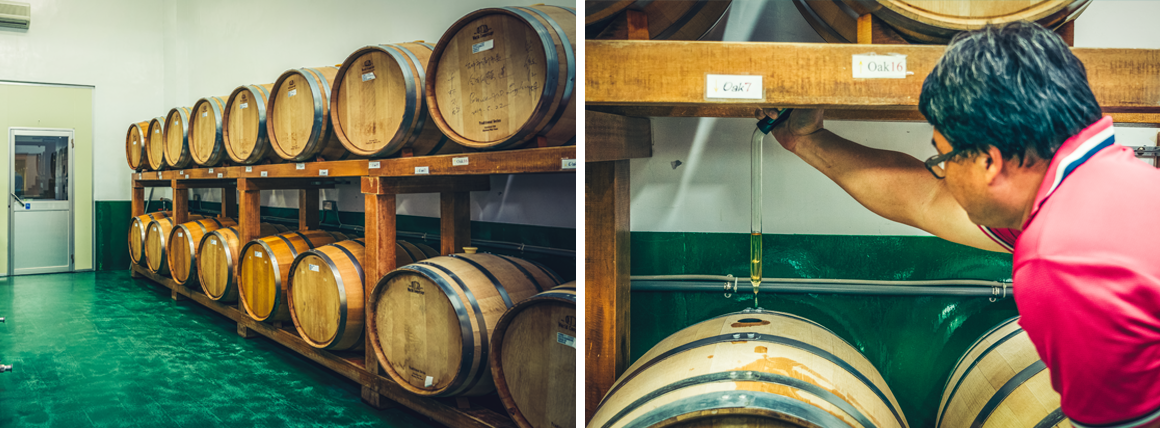
The winery team has a number of special points of pride. Taro and sweet potato are two quintessentially Taiwanese farm products, and their use creates unique shochu “of Japanese origin with true local Taiwan character.” Daan is one of Taiwan’s key areas for taro cultivation. These are the only spirits of their kind in Taiwan.

Fastidious employment of classical French technique is followed in the production of its grape wines and brandies, and premium-quality winemaking equipment from France is used. An elite-grade copper pot imported from Italy is used for distilling, and the wines and brandies crafted are stored in barrels of top-grade American oak made by the eminent World Cooperage company of Napa, California.

The winery has also taken the association’s bestselling line of pork-sausage products and created two new selections that have proven extremely popular: one infused with a Golden Muscat wine that has a light flavor and smooth texture, the other with a Black Queen brandy that has a deep, rich flavor and chewy texture.
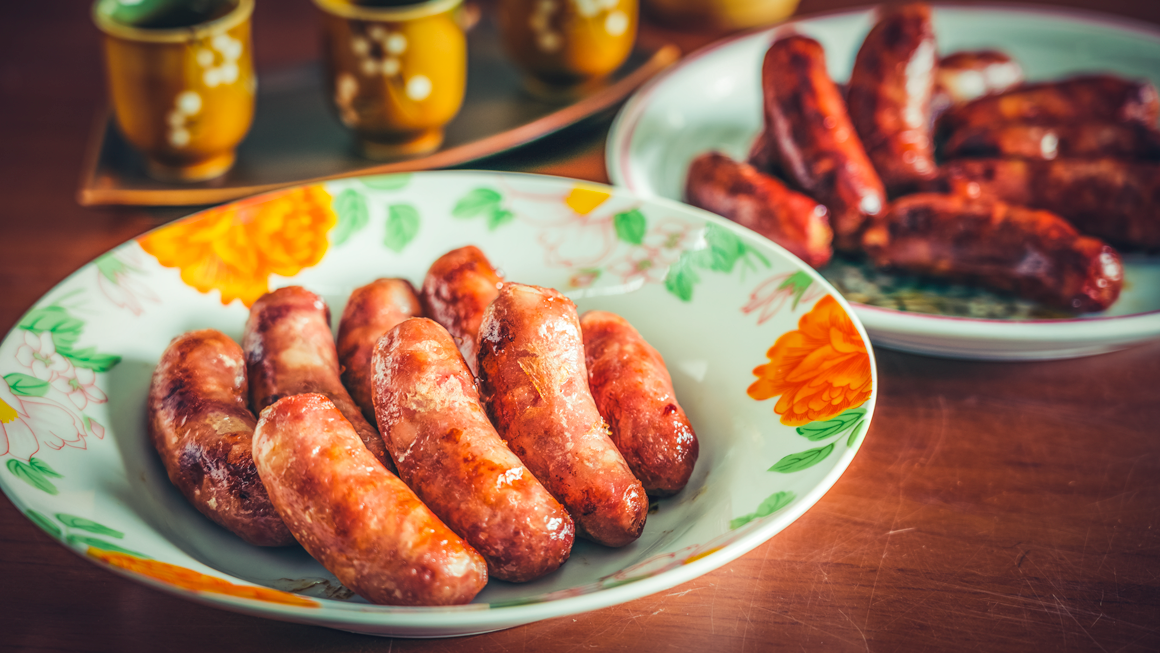
Daan Wineland (大安農會酒廠)
Add: No. 6, Zhongsong Rd., Neighborhood 3, Zhongzhuang Borough, Daan District, Taichung City (台中市大安區中庄里3鄰中松路6號)
Tel: (04) 2671-0909
Website: www.annofood.com/wine.php
The Gaomei Wetland, nearby on the coast, measures 3,000 hectares in area. Its boardwalk-topped seawall stretches 3.5km, and another long, meandering railing-less boardwalk shoots far out right into the wetland. At low tide head out past this boardwalk’s edge, on soft-yet-firm ground in the intertidal zone, for closer inspection of the teeming community of wetland residents, notably the countless fiddler crabs, mudskippers, and birds, both endemic and migratory. Taichung’s human denizens flock here each evening to take in the glowing sunsets over the Taiwan Strait, with the long line of eateries behind the seawall, serving grilled seafood, fried chicken, ice cream, fresh-made fruit juices, and other tasties, satisfying their other sensory demands before and/or afterward.


Between the Daan and Waipu districts is the town of Dajia, heart of the Dajia District. Its renowned main attraction is the fantastically ornate Dajia Zhenlan Temple (also spelled “Jenn Lann”; www.dajiamazu.org.tw; Chinese). Taiwan is an island nation, of course, and Mazu, the Goddess of the Sea, is worshiped at about 900 temples. This temple dates back to the 1700s, and its venerable Mazu icon is among Taiwan’s most famed and powerful. This is the launchpad for one of the world’s three largest religious celebrations, the annual Dajia Mazu Pilgrimage, staged in celebration of her springtime birthday. The palanquin-seated Dajia icon visits over 80 temples in central Taiwan on a 9-day round trip stretching 300-plus km, escorted by thousands of devotees and immortal-world minions/protectors, marching bands, and lion dancers. Over 100,000 people crowd the temple area for her launch and homecoming celebrations.

Perhaps the most popular of the scores of small old-time, family-run eateries found in the area around the temple’s main gate is Dajia Ma E-A Mianxian (“Dajia Mom Oyster Rice Noodles”). Taiwan’s central-south coastal region is renowned for oyster-farm production, and the delicious and filling signature dishes here, oyster rice noodles and oyster omelets, are classic Taiwanese hot-snack selections. A bonus for diners is the blow-ups of old b/w photos from the 1895-1945 Japanese colonial period that adorn the walls, showing how the Japanese widened the streets and opened up the temple area, for both hygiene and military-movement purposes.

Dajia Ma E-A Mianxian (大甲媽蚵仔麵線)
Add: No. 127, Jianggong Rd., Dajia District, Taichung City
(台中市大甲區蔣公路127號)
Tel: (04) 2686-4718
Also read: TAICHUNG COAST — Many Interesting Spots!
Dahu Wineland Resort
The Dahu Wineland Resort is in Miaoli County’s Dahu Township, northeast of Waipu in Taichung, on the edge of Dahu town. This hilly area is known as “strawberry country,” with many local farms offering DIY-picking opportunities. The “resort” is in fact a large, rambling retail-oriented complex with three main facilities – the Wine Production Center, Wine Tasting Center, and Strawberry Culture Museum – along with a restaurant and numerous small food and beverage stands. A wide range of fruit wines is crafted on-site, notably strawberry and plum selections. This is both Asia’s first and its foremost strawberry-wine producer. Guided tours (in Chinese) of the wine-production facilities are available, introducing the full process from pressing to storage. Among the many non-alcoholic strawberry-theme products sold on-site are strawberry jam, vinegar, ice-cream, popsicles, biscuits, and crispy egg rolls.


Dahu Wineland Resort (大湖酒莊)
Add: No. 24, Baliaowan, Fuxing Village, Dahu Township, Miaoli County
(苗栗縣大湖鄉富興村八寮灣24號)
Tel: (037) 994-986
Website: dahufarm.org.tw; Chinese)
Also read: Driving and Rail-Biking Through MIAOLI/HSINCHU
Getting There and Around
On this trip the Travel in Taiwan crew took a high-speed rail train from Taipei to Taichung, the trip taking about an hour. The high-speed rail station is just southwest of the city’s downtown core. This article’s highlighted sites are distant from each other, so a rented car is recommended. You’ll find booths for a number of reputable rental outfits in the station. Another option for getting to Taichung is the regular-rail service; the Taichung station is right in the city core. The English-speaking staff at the visitor information centers in both stations can provide local-transport guidance.
About the author

Rick Charette
A Canadian, Rick has been resident in Taiwan almost continually since 1988. His book, article, and other writings, on Asian and North American destinations and subjects—encompassing travel, culture, history, business/economics—have been published widely overseas and in Taiwan. He has worked with National Geographic, Michelin, APA Insight Guides, and other Western groups internationally, and with many local publishers and central/city/county government bodies in Taiwan. Rick also handles a wide range of editorial and translation (from Mandarin Chinese) projects.


